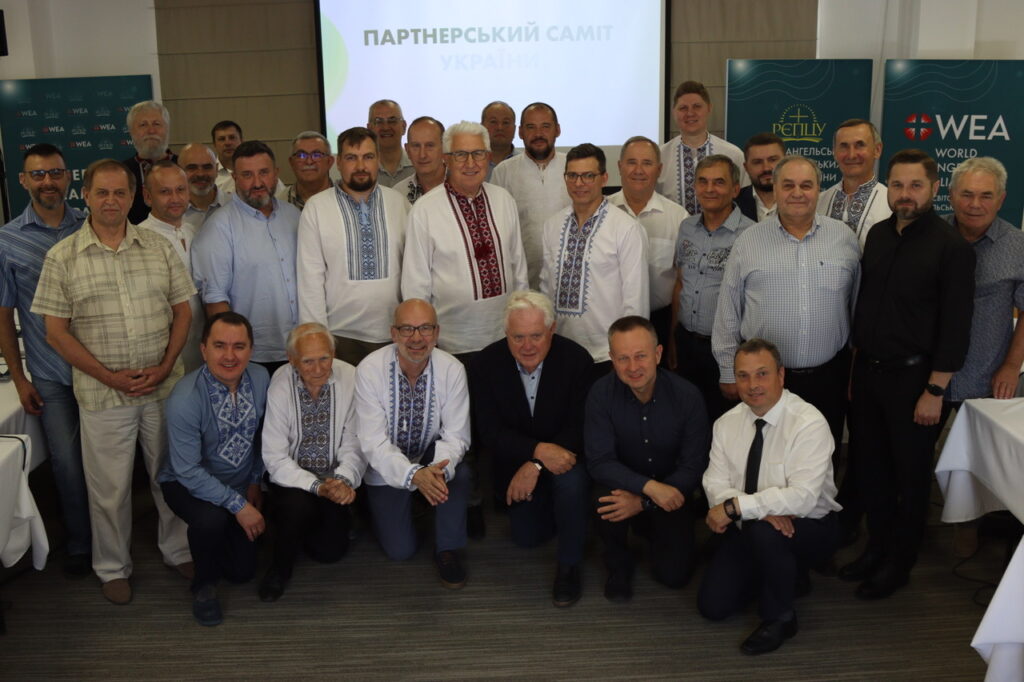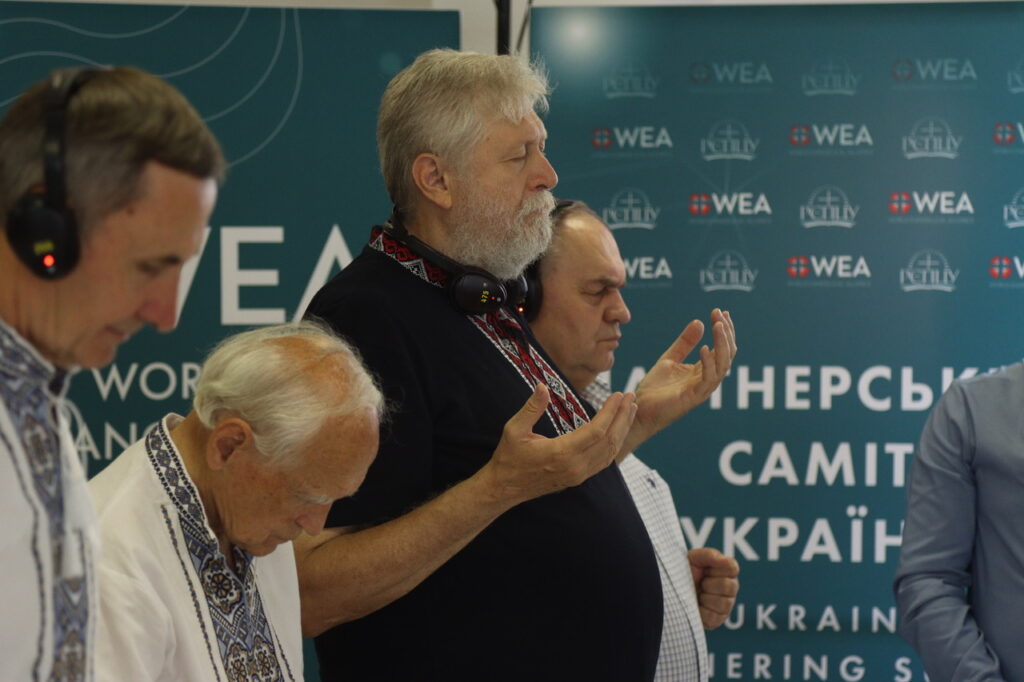
Ukrainian fortitude and resourcefulness has repeatedly shocked the world over the past six months. This is not just true of their military, but the people, too, and especially the Ukrainian Church. In the opening hours of the war, it was Christian volunteers who first began evacuating refugees to safer regions. Churches became waypoints and aid centers, while congregants and pastors ferried refugees to the border and hosted them in homes.
As the war drags on, the voices and actions of these selfless volunteers will increasingly shape and define the future of Ukrainian and European society. To strengthen their united voice, and amplify it to the world, the Council of Evangelical Churches of Ukraine and World Evangelical Alliance (WEA) brought together leading Christians from across the region for a two-day summit, titled “Today for Tomorrow”.

“We had a great and fruitful time, where we were able to discuss the current situation as leaders of different Evangelical denominations,” says Victor Pavovski, Senior Bishop of the Moldovan Pentecostal Union. “The complete unity of all participants was also a visible display of how churches may be of help to needy people inside the country of Ukraine and abroad.”
In addition to Ukrainian church leaders, the June 28 and 29 summit brought together leaders from Poland, Hungary, Slovakia, Moldova, and the WEA. Pavovski says the event gave participants a more complete understanding of the challenges they face and the ways they can work together to advance the Kingdom of God.
“The summit had an unusually warm atmosphere, as all participants are involved in active social service and are united by the desire to save as many people as possible,” says Maksym Krupskyi, a leader from the Seventh Day Adventist Church in Ukraine.
“Leaders from different denominations [were able] to express themselves and listen to each other’s insights about the same crises,” Pavovski adds. He says a key takeaway was the “amazingly powerful resources the Church possesses, both human resources and material resources”.
Ruslan Maliuta, a Ukrainian who leads TRUST, the WEA’s special task force to help those affected by the war in Ukraine, says the Today for Tomorrow Summit gave room for participants to begin forming long-term strategies.
“The summit definitely helped strengthen collaboration and connection in a difficult time. This was the first time the Ukraine Council of Evangelical Protestant Churches had met since the beginning of the war, because everyone was focused on crisis response. So the summit provided the space for leaders who have been communicating and collaborating across the region, to actually meet, connect, and share.”
It also helped leaders learn from each other’s strengths. One example Maliuta highlights is that few people realized how much prior experience the Ukrainian Church had in refugee support.
“Many churches in Ukraine have experience in dealing with these exact things. While the big war—as we say—started in February this year, there has been fighting in eastern Ukraine since 2014. So many churches in Ukraine have already been helping internally displaced people, people affected by the war.”
This is why Maliuta stresses the importance for the global Church to hear the needs from Christian leaders from the region, and for the Church to come alongside these leaders as they plan the long road ahead.
“We need to know what they’ve learned, what they’ve experienced, what they need, and what are good responses. They need to be part of the decision-making. So the summit was a way to bring key Church leaders together and see what common messages arise.”

The summit’s participants released a resolution to highlight some of these key messages.
Both Maliuta and Krupskyi agree a critical aspect of the resolution is the need to support and rehabilitate pastors affected by the war.
“Strengthening pastoral ministry will strengthen the entire network of church ministry,” Krupskyi states. “Supporting pastoral families who are also affected by this situation can open the most effective models for further leadership in times of crisis.”
“From my perspective, we need to focus on the long-term and on the rehabilitative trauma care, especially for pastors,” Maliuta adds. “There is a vibrant Evangelical community in Ukraine and these congregations depend on leadership. If we want churches to be epicenters of response, we need to be very intentional about supporting pastors, so they can provide the leadership that is needed.”
As Ukrainian and Central and Eastern European churches refocus on long-term needs and strategies, they have also begun planning a larger gathering for this fall. They hope to bring together a broader group of leaders, including service organizations and other ministries, with a goal to foster further collaboration and greater unity.
“We are working to identify how there can be an ongoing conversation,” Maliuta says, “between leaders in Ukraine, leaders in neighboring countries, and globally speaking in the Church.”
Read the Resolution of the Ukraine Partnering Summit “Today — for Tomorrow”





Stay Connected